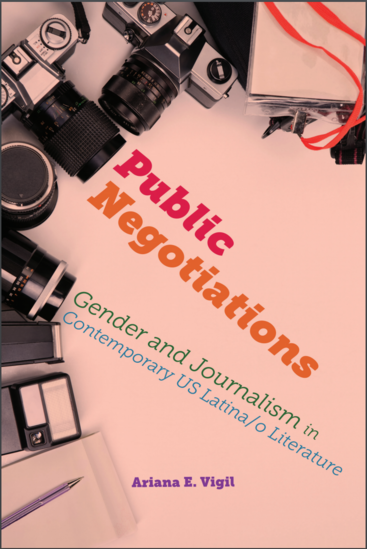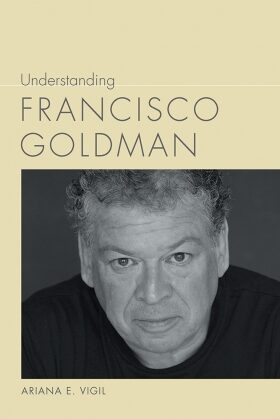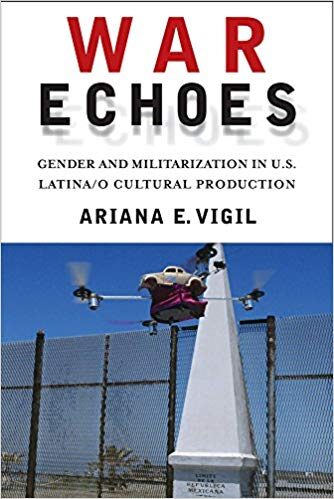New Book! Public Negotiations: Gender and Journalism in Contemporary US Latina/o Literature
Public Negotiations: Gender and Journalism in Contemporary US Latina/o Literature examines how the boundaries of the Latina/o public sphere are negotiated through mass media. Focusing on a wide range of twentieth- and twenty-first century Latina/o literary texts that feature Latina/o media figures—works by Lucha Corpi, Oscar Zeta Acosta, Cherríe Moraga, and Rubén Salazar, among others—my book examines the relationship between Latina/o media and Latina/o publics and reflects on how literature demonstrates a sustained interest in this relationship. Public Negotiations also reveals how these conversations inevitably engage with gender concerns, showing how the role of gender in this relationship is neither static nor consistent over time. Examining how these works represent such things as gendered Latina/o counter publics, how Central American–American communities are gendered in relation to other US Latina/o communities, how and why gendered expressions of Latinidad are produced and marketed, and how print media provides an important space for dissemination of diverse ideas, Public Negotiations considers the way in which gender functions in terms of both the construction and reception of a Latina/o public in a transnational space. Through thorough examination and with deep insight, I show how literature can invaluably reflect current and historical issues surrounding media and the public sphere and help us imagine new, hopefully better, possibilities.

Understanding Francisco Goldman
Award-winning writer and journalist Francisco Goldman is the author of novels and works of nonfiction and is a regular contributor to the New Yorker magazine. His awards include the Sue Kaufman Prize for First Fiction and the T. R. Fyvel Book Award, as well as a Guggenheim Fellowship. Born to a Guatemalan mother and Jewish American father, Goldman's heritage has shaped his unique perspective and has had a significant influence on his literary themes.
In Understanding Francisco Goldman, the first book-length study of Goldman's life and work, I begin with a biographical chapter drawn largely from Goldman's essays and interviews. The following analytical chapters, one for each of Goldman's four novels and two works of nonfiction, offer biographical, historical, political, and literary context for each work while exploring major themes.
My book examines the influence literary and political history have had in the development of Goldman's characters and themes, as well as his use of multiple literary genres and the role of humor in his work. I underscore how major themes in Goldman's work—migration, political violence, love, and loss—are explored across nations and time periods and how they remain significant today.
In Understanding Francisco Goldman, I draw connections between the writer's life and work and demonstrates the appreciation he deserves for his influence, diversity, and breadth. Through his thoughtful, intellectual, transnational writing, Goldman expands the definition of what it means to be American.

war echoes
My first book, War Echoes: Gender and Militarization in Transnational U.S. Latina/o Cultural Production, was published by Rutgers University Press in 2014. I have been honored by the many positive and thoughtful reviews it has received by activists, artists, and academics.
Review by Nina Serrano (whose 1979 film Despúes del Terremoto, is analyzed in Chapter One): http://ninaserrano.com/war-echoes-by-ariana-e-vigil/
Eric Vásquez in the December 2016 issue of Latino Studies here.
Susana Sepulveda in the October 2016 issue of Text and Performance Quarterly here.
Michaela J. Díaz-Sánchez in the Spring 2016 issue of the journal Chicana/Latina Studies here.
Miguel A. Levario in the March 2016 issue of Journal of American History here.
Natalie Havlin in the Summer 2015 issue of Feminist Formations here.
You can find out more about the book here.
